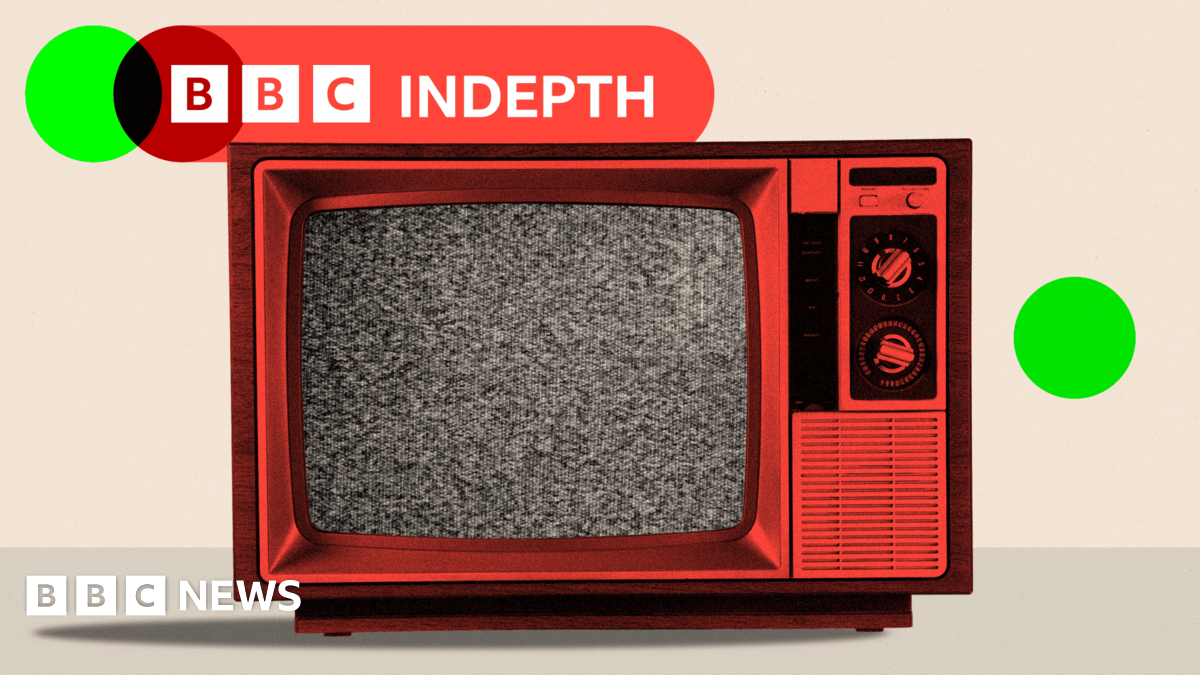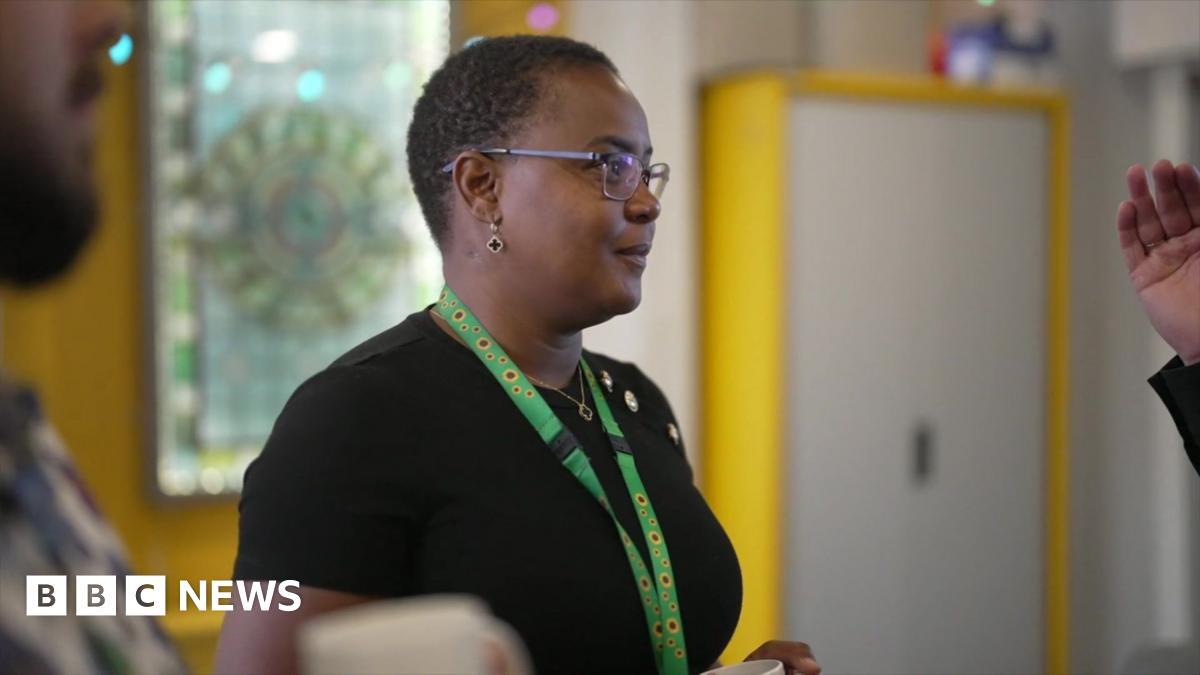How Will British Television Adapt To The Streaming Revolution?

Welcome to your ultimate source for breaking news, trending updates, and in-depth stories from around the world. Whether it's politics, technology, entertainment, sports, or lifestyle, we bring you real-time updates that keep you informed and ahead of the curve.
Our team works tirelessly to ensure you never miss a moment. From the latest developments in global events to the most talked-about topics on social media, our news platform is designed to deliver accurate and timely information, all in one place.
Stay in the know and join thousands of readers who trust us for reliable, up-to-date content. Explore our expertly curated articles and dive deeper into the stories that matter to you. Visit Best Website now and be part of the conversation. Don't miss out on the headlines that shape our world!
Table of Contents
How Will British Television Adapt to the Streaming Revolution?
The British television landscape, once dominated by the BBC and ITV, is undergoing a seismic shift. The rise of streaming giants like Netflix, Amazon Prime Video, Disney+, and Apple TV+ is forcing broadcasters to rethink their strategies, innovate, and adapt to survive in this fiercely competitive market. But how will they do it? The answer is multifaceted and involves a complex interplay of content creation, distribution, and audience engagement.
The Streaming Challenge: More Than Just Competition
The challenge isn't simply about competing for viewers; it's about competing for talent and budget. Streaming services are attracting top-tier writers, directors, and actors with lucrative deals, leaving traditional broadcasters to fight for the remaining talent pool. This impacts the quality and scale of productions, potentially leading to a decline in the overall output of British television unless broadcasters can adapt their strategies.
Furthermore, streaming platforms often boast massive budgets, allowing them to create ambitious, high-production-value shows that are difficult for traditional broadcasters to match. This disparity puts pressure on the BBC and ITV to find creative ways to compete, focusing on areas where they retain a competitive edge.
Adapting to the New Reality: Key Strategies for Survival
British television broadcasters are employing several strategies to navigate the streaming revolution:
-
Investing in High-Quality Original Content: The BBC and ITV are increasingly commissioning ambitious original series to compete with streaming platforms. This includes investing in diverse genres, focusing on strong storytelling and unique British voices. Examples include the BBC's recent success with The Serpent and ITV's investment in drama series like Vigil.
-
Embracing Hybrid Models: Recognizing the limitations of solely relying on traditional linear television, broadcasters are adopting hybrid models that blend linear broadcasting with on-demand streaming services. This allows them to reach wider audiences across multiple platforms. The BBC iPlayer and ITV Hub are prime examples of this strategy.
-
Focusing on Niche Audiences: While competing with global streaming giants on a broad scale can be challenging, British broadcasters have an advantage in catering to specific niche audiences. They possess a deep understanding of the British cultural landscape and can leverage this to create content that resonates strongly with specific demographics.
-
Leveraging Global Partnerships: Collaborating with international broadcasters and streaming services can provide access to wider audiences and reduce production costs. This collaborative approach is becoming increasingly common, with British productions finding homes on international platforms.
-
Prioritizing Interactive Content and Immersive Experiences: The future of television is increasingly interactive. Experimenting with interactive narratives, immersive experiences, and engaging social media campaigns can help broadcasters connect with younger audiences who are more accustomed to engaging with content in this way.
The Future of British Television: A Hybrid Landscape
The future of British television is unlikely to be a simple case of one model replacing another. Instead, we're likely to see a hybrid landscape where traditional broadcasters and streaming services coexist, each playing a distinct role. The success of British television will depend on its ability to adapt, innovate, and continue to produce high-quality content that resonates with a diverse audience both domestically and internationally. This necessitates a strategic shift towards investing in diverse talent, embracing new technologies, and fostering a culture of innovation within the industry. The challenge is significant, but the potential rewards – maintaining a vibrant and influential British television scene – are immense.
Call to Action: What are your thoughts on the future of British television? Share your predictions in the comments below!

Thank you for visiting our website, your trusted source for the latest updates and in-depth coverage on How Will British Television Adapt To The Streaming Revolution?. We're committed to keeping you informed with timely and accurate information to meet your curiosity and needs.
If you have any questions, suggestions, or feedback, we'd love to hear from you. Your insights are valuable to us and help us improve to serve you better. Feel free to reach out through our contact page.
Don't forget to bookmark our website and check back regularly for the latest headlines and trending topics. See you next time, and thank you for being part of our growing community!
Featured Posts
-
 Did Andor Save Star Wars Exploring The Shows Impact
May 15, 2025
Did Andor Save Star Wars Exploring The Shows Impact
May 15, 2025 -
 Uruguay Mourns Jose Mujica Legacy Of The Worlds Humble Leader
May 15, 2025
Uruguay Mourns Jose Mujica Legacy Of The Worlds Humble Leader
May 15, 2025 -
 A Portrait Of Oldham Immigration And Its Lasting Effects
May 15, 2025
A Portrait Of Oldham Immigration And Its Lasting Effects
May 15, 2025 -
 Atmospheric Pollution And Himalayan Visibility A Growing Concern
May 15, 2025
Atmospheric Pollution And Himalayan Visibility A Growing Concern
May 15, 2025 -
 Behind The Scenes Ballerinas Final Trailer And The Story Of Its Difficult Production
May 15, 2025
Behind The Scenes Ballerinas Final Trailer And The Story Of Its Difficult Production
May 15, 2025
